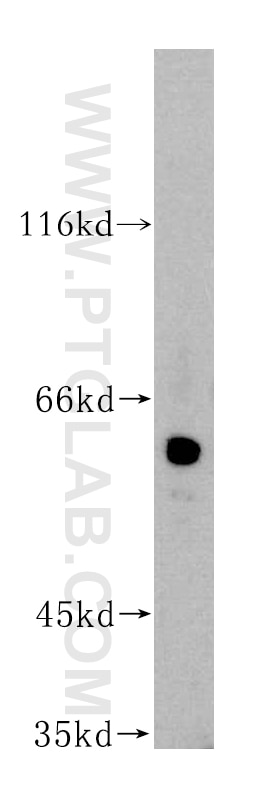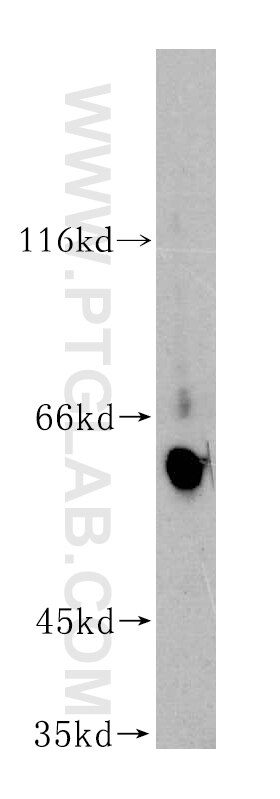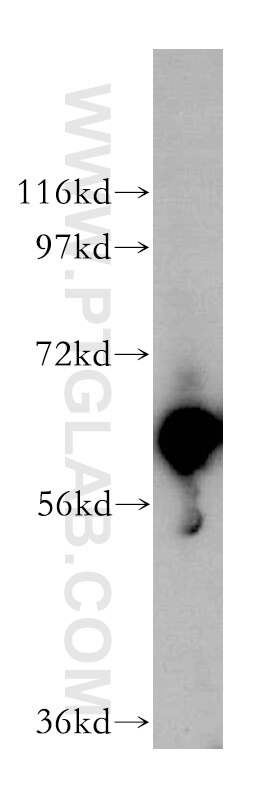Tested Applications
| Positive WB detected in | human placenta tissue, A2780 cells, mouse thymus tissue |
Recommended dilution
| Application | Dilution |
|---|---|
| Western Blot (WB) | WB : 1:500-1:2000 |
| It is recommended that this reagent should be titrated in each testing system to obtain optimal results. | |
| Sample-dependent, Check data in validation data gallery. | |
Product Information
16240-1-AP targets GAL3ST4 in WB, ELISA applications and shows reactivity with human, mouse, rat samples.
| Tested Reactivity | human, mouse, rat |
| Host / Isotype | Rabbit / IgG |
| Class | Polyclonal |
| Type | Antibody |
| Immunogen |
CatNo: Ag9063 Product name: Recombinant human GAL3ST4 protein Source: e coli.-derived, PET28a Tag: 6*His Domain: 136-486 aa of BC012976 Sequence: HMRFNLKEVLQVMPSDSFFFSIVRDPAALARSAFSYYKSTSSAFRKSPSLAAFLANPRGFYRPGARGDHYARNLLWFDFGLPFPPEKRAKRGNIHPPRDPNPPQLQVLPSGAGPRAQTLNPNALIHPVSTVTDHRSQISSPASFDLGSSSFIQWGLAWLDSVFDLVMVAEYFDESLVLLADALCWGLDDVVGFMHNAQAGHKQGLSTVSNSGLTAEDRQLTARARAWNNLDWALYVHFNRSLWARIEKYGQGRLQTAVAELRARREALAKHCLVGGEASDPKYITDRRFRPFQFGSAKVLGYILRSGLSPQDQEECERLATPELQYKDKLDVKQFPPTVSLPLKTSRPLSP Predict reactive species |
| Full Name | galactose-3-O-sulfotransferase 4 |
| Calculated Molecular Weight | 486 aa, 54 kDa |
| Observed Molecular Weight | 55-60 kDa |
| GenBank Accession Number | BC012976 |
| Gene Symbol | GAL3ST4 |
| Gene ID (NCBI) | 79690 |
| RRID | AB_2294471 |
| Conjugate | Unconjugated |
| Form | Liquid |
| Purification Method | Antigen affinity purification |
| UNIPROT ID | Q96RP7 |
| Storage Buffer | PBS with 0.02% sodium azide and 50% glycerol, pH 7.3. |
| Storage Conditions | Store at -20°C. Stable for one year after shipment. Aliquoting is unnecessary for -20oC storage. 20ul sizes contain 0.1% BSA. |
Protocols
| Product Specific Protocols | |
|---|---|
| WB protocol for GAL3ST4 antibody 16240-1-AP | Download protocol |
| Standard Protocols | |
|---|---|
| Click here to view our Standard Protocols |








